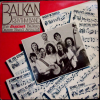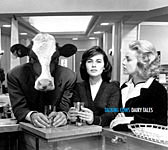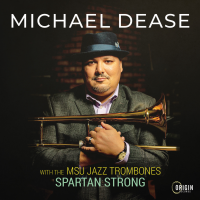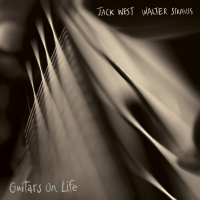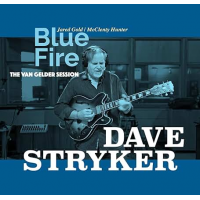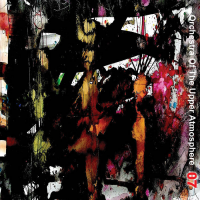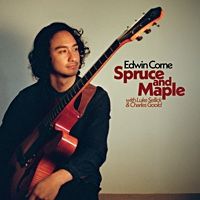Home » Jazz Articles » Multiple Reviews » Hatfield and the North: Hatfield and The North / The Rotters Club
Hatfield and the North: Hatfield and The North / The Rotters Club
Keyboardist Dave Stewart had already established a name for himself with Egg and Khan, though in the former the compositional duties were largely assumed by the vastly undervalued Mont Campbell, and the latter was more of a vehicle for guitarist Steve Hillage, who'd previously intersected with Stewart and Campbell in the more psychedelic, pre-Egg group Uriel (whose long out-of-print album, along with an archival disc of Egg oddities, was finally released on CD in 2007 through UK's Burning Shed). By the time Stewart was recruited for Hatfield and the North, replacing original keyboardist, Caravan's Dave Sinclair, he'd gone—seemingly overnight—from a talented, post-Keith Emerson keyboardist to one with a decidedly greater jazz bent, albeit one with a harmonic language strangely distanced from the American tradition.
Guitarist Phil Miller and drummer Pip Pyle went back to the mid-1960s and the group Delivery, though both made greater names for themselves in other places. Miller was the guitarist in ex-Soft Machine drummer/singer Robert Wyatt's Matching Mole (a clever pun on the French translation for Soft Machine, Machine Molle), which released two studio albums and, in recent years, has seen some fine archival performances issued, including On the Radio (Hux, 2007). A curious musician who, as Wyatt once wrote, "would rather play a wrong note than a note that somebody else had ever played," Miller's rapid evolution from Matching Mole's quirky but oftentimes sloppy guitarist into one with a richer vernacular and lither but still idiosyncratic approach to melody, remains one of the more under-appreciated stories in modern jazz; one that continues to this day with his group In Cahoots, and releases including All That (Cuneiform, 2003) and the more ambitious Conspiracy Theories (MoonJune, 2007).
Pyle played in the early incarnation of Gong responsible for its nascent classic Camembert Electrique (Charly, 1971) before returning to England in 1972 to reunite with Miller, his brother Steve (keyboards) and bassist/vocalist Richard Sinclair—the latter two having left Caravan, of which Sinclair was a founding member—for a new version of Delivery. An early glimpse of this group, which was the germinal Hatfield, can be heard in the bonus tracks of Cuneiform's wonderful 2007 collection of Steve Miller and saxophonist Lol Coxhill's Miller/Coxhill Coxhill/Miller / "The Story So Far..." ..."Oh Really?". Pyle—who sadly passed away in 2006 at a time when Hatfield had reformed (with keyboardist Alex Maguire replacing Stewart) for some live dates and the promise of new material—was a drummer who, more than many, combined the energy and backbeat-driven approach of rock with jazz's looser interpretive aesthetic, and whose group Equip' Out demonstrated an even more fervent realignment to the jazz world in later years on albums like Instants (Hux, 2004).
Richard Sinclair had already established himself as a talented bassist, composer and singer with Caravan, especially on its early milestone, In the Land of Grey and Pink (Decca, 1971). With a curiously deadpan delivery, his mellifluous voice was one that never aimed for excess melisma, yet was immediately recognizable. As a bassist, while his playing with Caravan was nothing short of superb, it was with Hatfield that he had the opportunity to really stretch out and prove himself a more sophisticated player, both as a member of the ensemble and as a distinctive soloist.
But in typical Canterbury fashion—the scene so deeply incestuous and, from an archivist's point of view, so interwoven as to make documenting the period an almost insurmountable challenge (though Aymeric Leroy, through his Calyx: The Canterbury Webite and numerous CD liner notes, has become its undisputed expert)—there were some changes in store before the final, classic line-up was cemented into place. Steve Miller left Delivery, to be replaced by Richard Sinclair's cousin Dave (also from Caravan) and a subsequent renaming of the group to Hatfield and the North (taken from road signs out of London, pointing to the A1 motorway). Within months Dave Sinclair left the band for the same reason he'd left Matching Mole—too much emphasis on improvisation— returning to Caravan for a series of classics including For Girls Who Grow Plump in the Night (Decca, 1973) and Caravan and the New Symphonia (Decca, 1974).
Dave Sinclair's ultimate replacement by Stewart was, however, the final piece in the puzzle that would make Hatfield and the North a group which may never have received the appreciation or commercial attention it deserved, but to which time has been extraordinarily kind. With a distinctive complexion that blended stunning solos with compositions from everyone in the group—often joined together to create lengthy, side-long suites that were invariably far greater wholes than the sum of their parts—Hatfield and the North's music remains both of its time and thoroughly timeless. It was and is music that reflected the musical fearlessness and unfettered stylistic cross-pollination of its time, and a cultural personality that kept its distance from the fusion efforts of its American counterparts. Unmistakably British, Hatfield and the North is a group that would have sounded completely different had it emerged a few years earlier or later, and with the same careful treatment from Esoteric's Mark Powell as he applied to other Canterbury releases including the two National Health albums from 1978 that would find Stewart, Miller and Pyle back together again, Esoteric's reissues of both Hatfield and the North and The Rotters Club are unequivocally definitive.
With clearly improved sonics, albeit often more in the nuances and less in-your-face, Esoteric has also collected all the bits and bobs from samplers and singles as bonus tracks on both reissues, including material from the 1975 Virgin label sampler V, the 1976 Chrysalis compilation of live performances from a number of groups at North London's heralded The Rainbow Theatre, Over the Rainbow and Hatfield's posthumous collection, Afters (Virgin, 1980). New liner notes by Sid Smith shed further light onto the group's history. When combined with two recent archival collections of live and radio performances, released by the group through Burning Shed- -Hatwise Choice: Archive Recordings 1973-1975, Volume 1 (2005) and Hattitude: Archive Recordings 1973-1975, Volume 2 (2006)—the full story of Hatfield and the North is now available, in the best possible form.
 Hatfield and the North
Hatfield and the North Hatfield and the North
Esoteric Records
2009 (1974)
Within the first six minutes of Hatfield and the North, almost every defining marker of the group is laid bare with four miniatures: Pyle's electronic, 23-second intro "The Stubbs Effect" that would bookend the album; Sinclair's equally pithy lyrical intro to the group, "Big Jobs (Poo Poo Extract)"—"Here's a song to begin the beginning/a few notes which are, arbitrary/but we try our best, to make it sound right/and hope that the music turns you on to our latest LP/should be a laugh certainly"; Stewart's effortlessly building, metrically shifting and harmonically challenging "Going Up To People and Tinkling," where the keyboardist and Miller solo in tandem, orbiting around each other and the still-under-three-minute song's singable melody, while responding to each other with early empathic chemistry; and Miller's "Calyx," with its serpentine melody and some fine lyric-less vocal interplay between Sinclair and guest singer Robert Wyatt.
A lesser-known tidbit about the opening and closing "The Stubbs Effect" comes from Aymeric Leroy: "'The Stubbs Effect,' in the incarnation(s) that features on the album, is not actually by Pip Pyle. Pip had written a piece by that name, which was a tape collage and deemed too long and experimental by the others, so Stewart quickly put together the multiple speeded-up pianets thing, which retained the title and credit to Pyle but he actually had nothing to do with it." Pyle would later recycle his "The Stubbs Effect" in the middle of "The Yes / No Interlude" on The Rotters Club.
With titles like these, as well as Sinclair's reprise of "Big Jobs," "Big Jobs No. 2 (by Poo And The Wee Wees)" leading into Stewart's contrapuntally complex yet eminently thematic "Lobster In Cleavage Probe," featuring the angelic Northettes (singers Barbara Gaskin, Amanda Parsons and Ann Rosenthal), it's clear that this is a group for whom humor is an equal component to some undeniably serious music. With Monty Python at its peak, the kind of titular, lyrical and musical absurdity that's found on the following "Gigantic Land Crabs In Earth Takeover Bid"—a more foreboding and high octane piece that, throughout, reprises Pyle's lengthy, atmospheric but rhythmically insistent and improv-heavy "Shaving Is Boring" as a feature for Miller at his most abstruse, before turning lighter for a more restrained organ solo from Stewart, and finally climaxing thematically into Pyle's "The Other Stubbs Effect"—is definitive of the entire album. Frank Zappa-esque but with a decidedly British slant, Hatfield may or may not have been influenced by the late guitarist/composer's episodic approach to side-long epics in the days of LPs, but there's a link just the same.
Miller's "Aigrette" may amble along amiably enough, but its snaking acoustic guitar theme—doubled by Sinclair's voice—never repeats itself once for the first minute of its entire 98 seconds; one of the longest melodies ever written to remain, strangely enough, singable and easy to recall. Segueing into Sinclair's only slightly longer (well, at 2:56, nearly double "Aigrette"'s length) "Rifferama," Hatfield closes its first side with a truly mammoth collection of riffs that, nevertheless, manage to hang together as the group builds to a viscerally funky climax of solo trade-offs between the oblique Miller, guest saxophonist Didier Malherbe (from Gong) and Stewart, who succeeds in playing wah-wah'd lines that are both knotty and inherently humorous, as the song builds to a cacophony of multi-tracking that ends the only way it can—with the recording (this is, after all, before the days of sampling) of a large audience, laughing wildly.
"And now...Hatfield and the...North," say some unidentified voices, as Sinclair's "Fol De Rol" kicks off a second side-long suite that runs the gamut from Sinclair's change-heavy solo and quirky themes like those of "Shaving Is Boring"—early proof of Pyle's compositional acumen—to the bassist's "Licks For The Ladies," where he gives some deep insight into Hatfield's modus operandi: "In the end, choosing notes to see if they make friends/A D-sharp minor flattened 5th will go to C/dotted crotchets usually divide by three/We don't really know now exactly what we mean/still we had the gist of it till the chords changed..." It's a challenge to know whether to be more impressed by the group's ability to create deeply complex music with solos peppered throughout in an impressive demonstration of form-meets- freedom, or by its ability to make the entire process somehow unostentatious, even as it makes music that would challenge most to play, let along recall in performance without charts (as Hatfield did, back in the day).
Either way, Hatfield and the North remains a remarkable debut; an album that, when it was released in 1974, bore the personalities of its members while sounding absolutely like nothing that had come before it. 35 years later, and despite its influence, it remains a unique album that still sounds like nothing else, and with Esoteric's attentive remastering, it sounds better than it ever has. The addition of Hatfield's only single—1974's "Let's Eat Real Soon" (by Sinclair and Pyle), backed by Pyle's "Fitter Stoke Has A Bath," which would appear on The Rotters Club with slightly altered lyrics—is a window into a band trying to write radio-friendly material but still unable to desert its own markers.
Hatfield's later Hatwise Choice and Hattitude would make the group's constant reworking of its material more self-evident in its live and radio recordings, but back in the day, the long-lost "Your Majesty Is Like A Cream Donut incorporating Oh What A Lonely Lifetime" was an early indicator, for those unable to hear Hatfield live, of how the group would reorganize and rearrange its material, with "Your Majesty Is Like A Cream Donut" a part of Stewart's Rotters Club epic "Mumps," and "Oh What A Lonely Lifetime" a previously unrecorded Sinclair tune that foreshadows a later tendency towards singer/songwriting and less focus on the more progressive tendencies of his early career.
 Hatfield and the North
Hatfield and the North The Rotters Club
Esoteric Records
2009 (1975)
If Hatfield and the North was a shot across the bow of progressive rock, fusion jazz and pop songwriting, The Rotters Club was an even more mature effort, taking all the group's many distinctive qualities to the next level. That it did so in such order is all the more remarkable. Sinclair's buoyant "Share It," which opens the disc, is the most concise pop song Hatfield ever recorded, and would have stood a far better chance at radio success than its previously released single. It also features one of Stewart's best solos, on Minimoog; perfect in construction, it's proof that his strength as a focused soloist was intact, whether it was over longer stretches, or as here over a single verse and chorus.
Like its predecessor, The Rotters Club is largely a continuous experience, with the first side's seven tracks—ranging from another serpentinely elliptical instrumental from Miller, "Lounging There Trying," to Pyle's riff-based "The Yes / No Interlude," which features Stewart's powerfully overdriven organ, a wind duet and powerful saxophone solo courtesy of Caravan's Jimmy Hastings, and one of Miller's most outrageous solos of the set—linked together with clever segues. The side ends with Pyle's lyrically rewritten but still hauntingly prescient "Fitter Stoke Has a Bath," and Sinclair's "Didn't Matter Anyway," one of the bassist's most poignant songs, also featuring some beautiful flute work from Hastings.
Throughout, both the group's collective chemistry and individual strengths have evolved palpably. Stewart, playing more electric piano than on Hatfield and the North, is especially notable, with his solo on "The Yes / No Interlude" representing one of the most harmonically deep, melodically labyrinthine improvisations of his tenure with Hatfield. His voicings are unmistakable and, without any doubt, jazz-centric in nature. Hatfield may have been dismissed by those who believed that jazz was proprietary to its American roots, but despite the pop songwriting that was an undeniable part of who Hatfield was, it was equally and undeniably a jazz group, where improvisation and sophistication were given an accessible veneer that masked the challenging music going on under the hood.
Two of Hatfield's best instrumental (largely) works make up side two of the original LP. Miller's "Underdub" is an exercise in a different kind of swing, with a knotty set of changes and another winding melody that, here, is all the more beautiful for its doubling by Stewart on electric piano and Hastings on flute. Stewart works his way through Miller's complex changes before the group returns to its lengthy theme and the album's only fade-out and clearly intended/lengthy pause, which sets up the ethereal and atmospheric opening of "Mumps," Stewart's most advanced writing to date.
Stewart's use of The Northettes' heavenly vocals—another of Hatfield's most definitive colors—allows him to layer theme after theme without ever becoming overly dense. And as "Mumps" progresses from its initial quiet version of Stewart's memorable "Your Majesty Is Like A Cream Donut" theme (forgetting about the humorous Monty Python reference of the title) into its second segment, "Lumps," Stewart takes his most vibrant organ solo of the album, bolstered by Pyle's flexibly responsive rhythm and Sinclair's remarkable ability to simultaneously play anchor and foil. The Northettes, Sinclair, Miller and Stewart enter a passage of pure contrapuntal wizardry, with Pyle the only rock keeping a steady pulse; a lead-in to the knotty song form of "The Alphabet Song," towards the end of "Lumps." Puns galore—as Sinclair sings: "I have minded my P's and Q's/Tried not to damage any W's/And if I tread upon a B/I'll pick it up and tell it earnestly," ending with the almost painful "Balancing syllables upon my knees/I've flown through the air with the greatest of E's/I did what you told me to/Now I only have I's for U"—it's an early sign of Stewart's comedic writing, something that would become increasingly evident on his liner notes to later compilations like National Health's Complete (East Side Digital, 1990) and even more so in Copious Notes (Egg Archive, 2007), Stewart's collection of recollections about Uriel and Egg by himself and others involved.
The near-perfect construction of the 20-minute long "Mumps" stands as some of Stewart's most profound writing ever—and some of Hatfield's best playing. It's near-classical use of thematic iteration, in a context that, at times, rocks with great energy but, elsewhere, demonstrates remarkable nuance and understatement, makes it in some ways a sad closer to The Rotters Club. While Stewart would go on to great compositional heights and more ambitious orchestration with National Health, the confluence that made Hatfield and the North what is was would never be recaptured, begging the question of where would this band have gone had it not broken up, the result of great artistic success that remained unsupported by anything more than minimal commercial achievement.
The live bonus tracks here are the same as those on the original Virgin CD issue, except that Stewart's brief "(Big) John Wayne Socks Psychology On The Jaw" and Pyle/Sinclair's "Chaos At The Greasy Spoon" that segued into the bassist's "Halfway Between Heaven and Earth" are omitted, but the version of "Halfway" is the full version, fading up on Sinclair's bass solo rather than the slightly edited take on the Virgin release where it's cut out. Yet another example of Sinclair's romantic lyric writing, but with a more complicated underlying context, Sinclair also demonstrates a distinctive variation on scatting, with an underwater sound that, as it turns out after seeing him perform with the reformed Hatfield at the 2006 La Festival des Musiques Progressives de Montréal, was nothing more complicated than wobbling his lips with his finger or rapidly undulating his tongue while he sings.
Two Miller tracks close out the disc, as they did the Virgin issue: the monster riff-driven "Oh, Len's Nature!" and more jazz-centric "Lything and Gracing"—the former an anagram renaming of "Nan's True Hole" from Matching Mole's Little Red Record (Columbia, 1972), and the latter a retitling of Little Red Record's "Righteous Rhumba." Again, not particularly revealing since the release of Hatwise Choice and Hattitude, but in the day shedding some light into the improvisational prowess of the group in performance, they remain strong reminders of Miller's ability to find the absolute opposite of what might be expected.
Which, at the end of the day, is as good a way to describe Hatfield as any. Lyrical, funny, muscular, subtle, improv-rich but composition-heavy, there was and remains no group remotely like Hatfield and the North. Three-quarters of the group would, following its break- up in 1975, once again find themselves together in 1978 with National Health, a group that, by that time, had become more distinctly driven by Stewart's vision. Hatfield, on the other hand, was always more egalitarian, as Stewart recently described, "I always saw Hatfield as Pip's band because he pulled the personnel together. Musically it started off as a four-way thing which tilted in my direction after the introduction of my longer pieces, but I feel it remained a compositional collective to the end and was arguably a better, more varied band for that."
With Pyle's recent demise, Esoteric's definitive reissues of Hatfield and the North and The Rotters Club are even more important documents of a very specific time and place—and a group that successfully managed to create music of great depth and complexity, while retaining a sense of levity and lack of pretention that made it a model for progressive jazz groups for years to come, including France's Forgas Band Phenomena, and Italy's Picchio dal Pozzo and D.F.A. That the group lasted for such a short time is a tragedy; but that it left two albums that are as close as it comes to perfect is something for which to be very, very grateful.
Tracks and Personnel
Hatfield and the North
Tracks: The Stubbs Effect; Big Jobs (Poo Poo Extract); Going Up To People And Tinkling; Calyx; Son Of "There's No Place Like Homerton"; Aigrette; Rifferama; Foi De Rol; Shaving Is Boring; Licks For The Ladies; Bossa Nochance; Big Jobs No. 2 (by Poo And The Wee Wee); Lobster In Cleavage Probe; Gigantic Land Crabs In Earth Takeover Bid; The Other Stubbs Effect. Bonus Tracks: Let's Eat Real Soon (1974 single); Fitter Stoke Has A Bath (1974 single version); Your Majesty Is Like A Cream Donut incorporating Oh What A Lonely Lifetime (from 1975 Virgin Records V sampler).
Personnel: Dave Stewart: organ, pianos, tone generator; Phil Miller: guitars; Richard Sinclair: bass, singing; Pip Pyle: drums; The Northettes (singing): Amanda Parsons, Barbara Gaskin, Ann Rosenthal; Geoff Leigh: saxophones, flute; Jeremy Baines: pixiephone; Robert Wyatt: singing (4).
The Rotters Club
Tracks: Share It; Lounging There Trying; (Big) John Wayne Socks Psychology In The Jaw; Chaos At The Greasy Spoon; The Yes / No Interlude; Fitter Stoke Has A Bath; Didn't Matter Anyway; Underdub: Mumps: Your Majesty Is Like A Cream Donut (quiet), Lumps, Prenut, Your Majesty Is Like A Cream Donut (loud). Bonus Tracks: Halfway Between Heaven and Earth (live, from 1976 Chrysalis compilation Over The Rainbow); Oh! Len's Nature (live, from 1980 Virgin Hatfield and the North compilation Afters); Lything and Gracing (live, from 1980 Virgin Hatfield and the North compilation Afters).
Personnel: Dave Stewart: organ, electric piano, tone generator, Minimoog; Phil Miller: guitars; Richard Sinclair: bass, vocals; Pip Pyle: drums, percussion things; The Northettes (singing): Amanda Parsons, Barbara Gaskin, Ann Rosenthal; Jimmy Hastings: flute, soprano and tenor saxophones; Mont Campbell: French horn; Lindsay Cooper: oboe, bassoon; Tim Hodgkinson: clarinet.
Tags
PREVIOUS / NEXT
Support All About Jazz
 All About Jazz has been a pillar of jazz since 1995, championing it as an art form and, more importantly, supporting the musicians who make it. Our enduring commitment has made "AAJ" one of the most culturally important websites of its kind, read by hundreds of thousands of fans, musicians and industry figures every month.
All About Jazz has been a pillar of jazz since 1995, championing it as an art form and, more importantly, supporting the musicians who make it. Our enduring commitment has made "AAJ" one of the most culturally important websites of its kind, read by hundreds of thousands of fans, musicians and industry figures every month.


